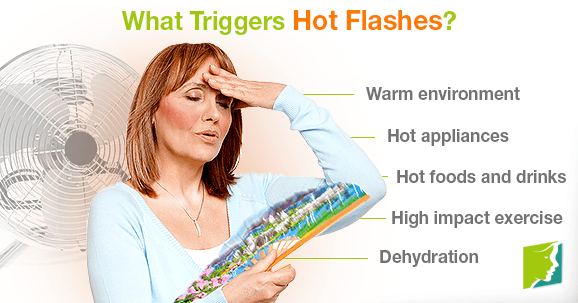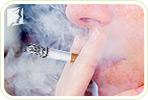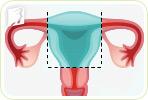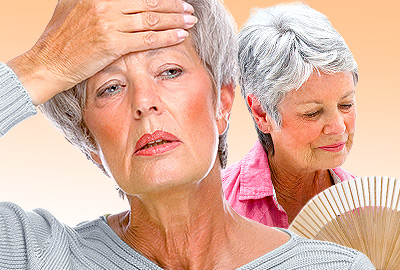Hot flashes are one of the most common menopausal symptoms, and generally manifest during your forties or fifties. They can occur at any time of the day or night, and essentially cause your body to overheat, making you flushed, sweaty, and feverish.
Like all other menopause symptoms, hot flashes are caused by hormonal fluctuations. However, there are various triggers that can provoke or exacerbate hot flashes.
Warm Environment
Your environment can be a key trigger of hot flashes. If you live in a hot climate, or if you have your central heating on high, you may become more prone to hot flashes. Make sure you dress appropriately for the temperatures, and carry a bottle of water with you. If you can, set the air conditioning to cool.
Hot Appliances
Using hot beauty appliances such as hair dryers and curling irons can provoke hot flashes. Appliances used around the face, where hot flashes are felt most intensely, can be problematic. Instead, leave the time for your hair to dry naturally, or use non-heated curlers.
Hot Foods and Drinks
Hot foods such as stews and soups, as well as warm drinks like tea and coffee, can trigger hot flashes. Eating and drinking hot foods can cause hot flashes, not only because you're consuming hot things, but because digestion produces heat. Spicy foods in particular are a notable trigger for hot flashes.
Exercise
Cardiovascular exercise obviously generates heat and can cause a hot flash. However, it offers plenty of other health benefits to make up for this, so don't let hot flashes stop you from exercising: simply be prepared for them. Drink plenty of water, take a towel with you, and feel free to pause and take a breather if you feel one coming on.
Dehydration
Keeping hydrated is important at any time in life, but more so when your body is already in flux from hormonal changes. Keeping you body well hydrated will keep it running smoothly, and drinking cool water will help keep your body cool, and avoid hot flashes.
More Information
While hot flashes are problematic, there are many ways they can be combated. Not only are there simple lifestyle changes, but dietary and medical options available as well. Click on the link below for more information on hot flash treatments.
Sources
- Sikon, Andrea and Holly Thacker M.D. "Treatment for Menopausal Hot Flashes". Cleveland Clinic Journal of Medicine. July 2004: 71 (7).
- "Hot flashes ... in January". Canadian Medical Association Journal. 2004: 170 (1).
- Miller, Heather and Rose Maria Li, M.D. "Measuring Hot Flashes: Summary of a National Institutes of Health Workshop". Conference report. Mayo Clinic. June 2004: 79.




